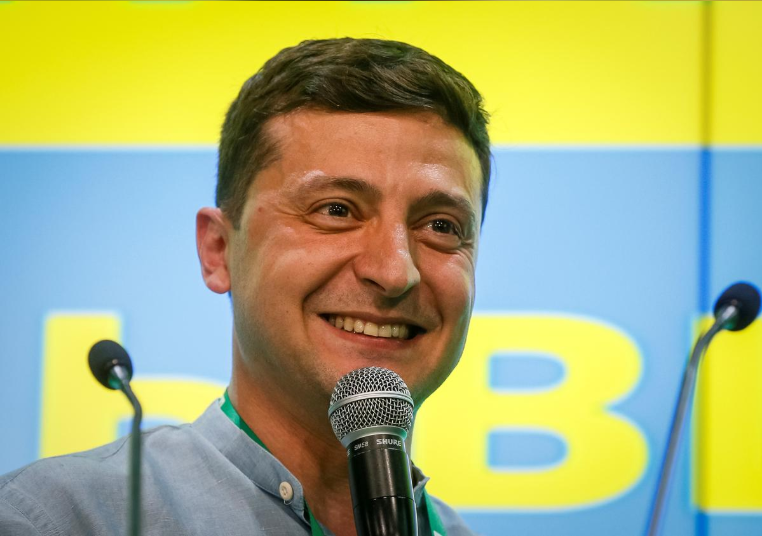
PHOTO: the Japan Times/SATOKO KAWASAKI. Japanese Prime Minister Shinzo Abe speaks to the media on Sunday night at the ruling Liberal Democratic Party’s headquarters in Tokyo.
Japanese Prime Minister Shinzo Abe’s ruling Liberal Democratic Party (LDP) coalition secured a majority in Japan’s upper house of Parliament on July 21, 2019. However, the majority is not enough the reach the super-majority needed to propose constitutional revisions, according to vote counts by public television and other media.
NHK public television said shortly after midnight on Sunday that Abe's Liberal Democratic Party and its junior partner Komeito had won 69 seats in the upper house, with nine seats remaining. If Abe gained support from members of another conservative party and independents, it would make only 76 seats, short of 85 he would have needed, NHK said. Official results will be announced on July 22, 2019. NHK also reported that voter turnout was the second lowest in the history of elections for the Upper House of Parliament.
Abe's ruling bloc already has a two-thirds majority in the lower house, but without such control of the upper chamber, he has a slim chance of achieving his long-cherished goal of revising a pacifist Constitutional that has been in place since American occupiers created it in 1947.
Nonetheless, Abe welcomed the results, saying winning a majority indicates a public mandate for his government. "I believe the people chose political stability, urging us to pursue our policies and carry out diplomacy to protect Japan's national interests," Abe said in an interview with NHK.
Abe said resolving the decades-old issue of Japanese citizens abducted by North Korea and signing a peace treaty with Russia would be his diplomatic priorities during the rest of his term.
Abe has led his Liberal Democratic Party to five consecutive parliamentary election victories since 2012, becoming Japan’s longest-serving prime minister.
He has prioritized revitalizing Japan's economy and has steadily bolstered the country's defenses in the backdrop of North Korea's missile and nuclear threats and China's growing military presence. He also has showcased his diplomatic skills by cultivating warm ties with President Donald Trump.
https://www.nytimes.com/2019/07/21/world/asia/japan-elections-2019.html
https://www.dailysabah.com/asia/2019/07/21/abes-ruling-coalition-secures-upper-house-majority-in-japan-elections
https://www.japantimes.co.jp/news/2019/07/21/national/politics-diplomacy/japan-upper-house-election/#.XTT3co4zZhE

PHOTO: Reuters/Valentyn Ogirenko. Ukraine’s President Volodymyr Zelensky speaks at his party’s headquarters after the parliamentary election in Kiev, Ukraine on July 21, 2019.
Exit polls in Ukraine suggest that the Servant of the People Party will likely have a majority in parliament in the snap parliamentary election held July 21, 2019. According to the polls, Servant of the People Party will have about 44% of the vote, far more than each of the four parties predicted to have cleared the 5% threshold to enter parliament.
Speaking outside a polling station after casting his ballot in Kiev earlier on Sunday, President Zelensky said that he was inviting the Holos (Voice) Party to hold talks on forming a coalition. He added that the snap election was “maybe more important than the presidential election”, as the “president, prime minister and parliament have to work together, just to make life happy for Ukraine”.
The pro-Russian Opposition Platform - For Life party is currently in second place with about 12% of the vote. However, Mr Zelensky has ruled out any coalition with it. The other two parties projected to enter parliament are former President Petro Poroshenko's European Solidarity (about 9%) and Batkivshchyna (Fatherland) led by former Prime Minister Yulia Tymoshenko (about 8%).
Sunday’s likely victory would give him control of parliament and the formation of a new government, handing him a stronger mandate to implement reforms after he won the presidential election in April by a landslide. Until now, he has been unable to appoint the ministers he wanted.
President Zalensky said he was holding consultations with a possible candidate for prime minister whom he did not identify. In parliament, he said that he would like to see “young people, as everyone is tired of professional politicians who have been sitting there for ages.”
https://www.reuters.com/article/us-ukraine-election/ukraine-president-on-course-for-commanding-win-in-parliamentary-election-idUSKCN1UG034
https://www.bbc.com/news/world-europe-49061504

PHOTO: WAM/Hassan Bashir/Rasha Abubaker. Speaker of the UAE’s Federal National Council (center left) shakes hands with President of the Standing Committee of the National People’s Congress (center right) on July 21, 2019.
The strategic partnership and ongoing cooperation between the Federal National Council, FNC, and the National People's Congress of China have witnessed unprecedented development.
Dr. Amal Abdullah Al Qubaisi, Speaker of the FNC, highlighted the importance of the expected visit of His Highness Sheikh Mohamed bin Zayed Al Nahyan, Crown Prince of Abu Dhabi and Deputy Supreme Commander of the UAE Armed Forces, to China, where he will meet with Xi Jinping, President of China, and senior Chinese officials, to reinforce the friendship between the two countries and promote strategic cooperation in all areas and sectors, as well as discuss international and regional topics of mutual concern.
She added that the visit will boost the strategic ties between the UAE and China, which were established by the late Sheikh Zayed bin Sultan Al Nahyan, while highlighting the key role of parliamentarians, parliamentary diplomacy and politicians in strengthening the communication between countries, cultures and civilisations.
She also pointed out that China is a leading player in international diplomacy and the global economy, while the UAE is also a key economic, commercial and cultural gateway to the region, and plays an important role in international diplomacy, and is a leading economic centre along the Silk Road and a hub for commercial exchange between China, the Arab region and Africa.
Dr. Al Qubaisi thanked China for supporting the UAE on relevant regional and international issues.
The FNC signed a Memorandum of Understanding, MoU, with the National People's Congress, which is the first MoU to be signed by China with a parliamentary institution from another country.
The FNC and the Chinese parliament are also cooperating within the Inter-Parliamentary Union, High-Level Advisory Group on Countering Terrorism and Violent Extremism, led by Dr. Al Qubaisi.
http://wam.ae/en/details/1395302775514
BY MSEAP Cyber Secretariat (mseap@assembly.go.kr) |